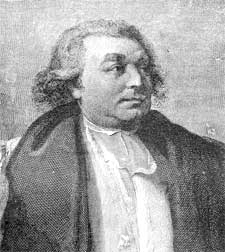 |
| Grand Central Terminal |
Rev. Molly F. James, PhD
St. Matthew's, Wilton
Advent 3, December 13, 2020
Isaiah 61:1-4, 8-11; Psalm 126; 1 Thessalonians 5:16-24; John 1:6-8,19-28
May God’s Word be spoken. May God’s Word be heard. May that point us to the living Word who is Jesus Christ our Lord. Amen.
Paul writes to the Thessalonians, “hold fast to what is good.” He even tells us to “rejoice always.” Really? I want to say. Really, God? Is this the message you have for us today? Don’t you know how many things we are missing right now? Don’t you know how many reasons there are for us to be frustrated and sad right now? It is about to be Christmas, and we are deprived of holding people we love. For most of us it has been weeks or months since we held onto a handle in a subway car or the top of a Metro North seat. We have not held an elevator door for a colleague hurrying to their office or the door of a restaurant for the next patron. Medical professionals and first responders have held the hands of far too many who have died. We feel surrounded by loss and grief, and our Scriptures are telling us to rejoice?
If you want to rail and argue and rage back against this text you are not alone. There is much to grieve in this time. We need to acknowledge the truth and the reality of the loss. It hurts. This is hard. Really hard. Especially for those of us who are used to having the power, the privilege, the resources to make things happen as we want them to, when we want them to happen.
But here is the thing. Grief is not all there is. Yes, the challenges are great. The losses are probably more than most of us have ever experienced or ever thought we would experience. We need to be gentle with our hearts in this time. We need to be gentle with each other. The grief is real, but we cannot allow it to blind us to the beauty and the grace. Even in the midst of grief, there is cause to rejoice.
That is what Paul means. The statement to “rejoice always” does not gloss over the reality of suffering. It is not meant for us to pretend that everything is okay even when it is not. It means that even in the midst of suffering there is cause for rejoicing. Always. It is Advent. It is the season where we are reminded that no matter how short the days are, no matter how dark it gets - literally or metaphorically - the darkness does not win. John the Baptist came to testify to the light. To announce to the world that the light shines in the darkness.
It may be hard to see. On some days it may seem nearly impossible, but I promise that the light is there. Paul tells us to hold fast to what is good. Indeed we can hold fast to much, even in the midst of challenges.
We may be struggling with all the people, all the things that we cannot literally “hold” in this season. But even if we cannot literally touch them, the love we have for them does not depend on being in the same room. In fact not being in the same room with them might be the most loving thing we can do for them right now.
There is the light. In acts of kindness and generosity. In a smile, even if it is on a screen. In the gifts of technology and modern life that allow us to work from home, to gather for worship in a way that keeps everyone safe, and to order delicious food to our doorsteps. Celebrating with family and friends in cyberspace even across great distances and time zones - possibly even a gathering of people who have not been in the same room for years, if ever.
What we can “hold fast” to in this time may not always be tangible. It is the truths of our faith. The beauty of this world. The sunlight on the trees. The sky filled with stars. The myriad of ways we have to show each other how much we care - acts of grace and compassion, large and small.
Even in the midst of stress and struggle, there is cause to rejoice. There is hope. Always. Things will not always be this way. We will again be able to gather in person. We will be able to travel, to ride airplanes and trains. To linger over a long meal with a dear friend in the corner of our favorite restaurant. It will all be possible again. And in the meantime, we can keep our spirits strong - to seek out all that feeds our souls and connects us to God and each other. To take more time for prayer. More time to care for our bodies. Time for sleep. Time for play. We can make more calls, send more letters. We can give generously. We can be more willing to accept help when it is offered. Indeed love and beauty will sustain us in this time.
God is always present, always inviting us into deeper relationship. We need only keep our hearts open to receive that invitation. May we have the courage and the grace to do so this Advent and always. AMEN.







